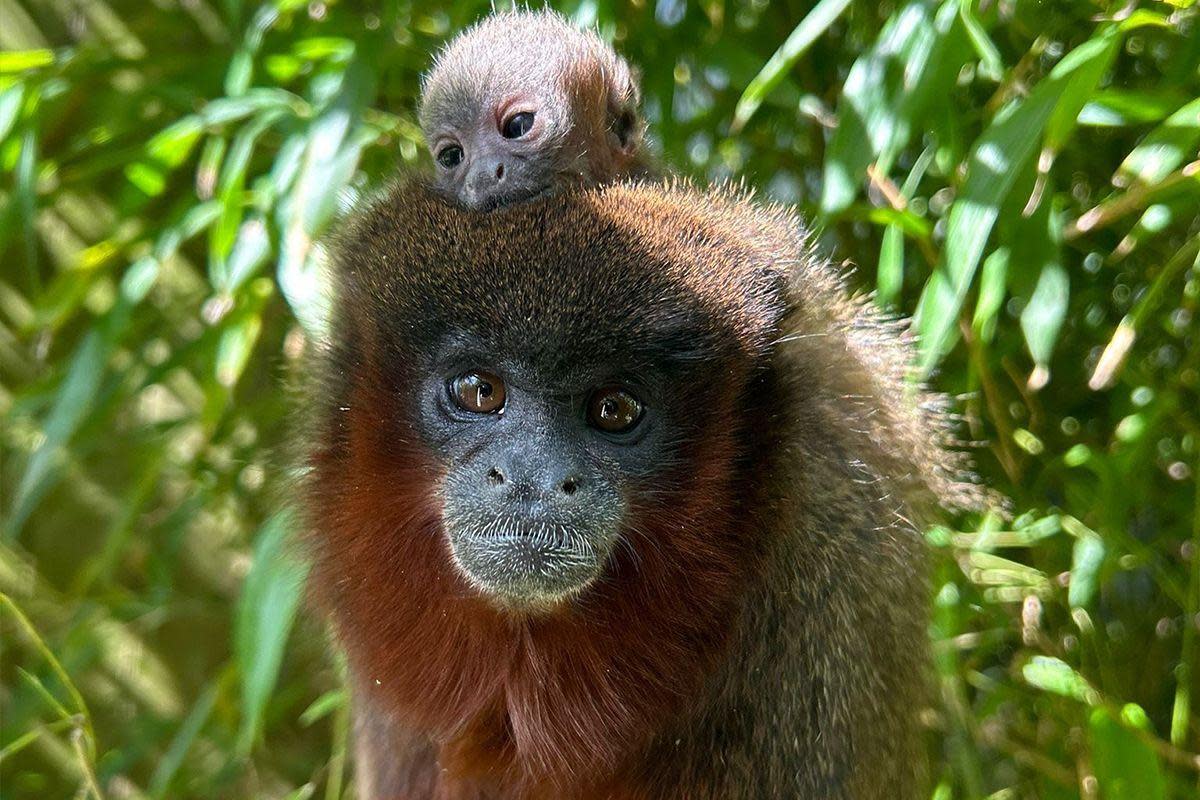Colchester Zoo welcomes new adorable baby monkey to first-time parents

COLCHESTER Zoo has welcomed yet another adorable new arrival in the form of a baby monkey.
The zoo's animal care team welcomed the arrival of a baby coppery titi monkey born to first-time parents, mum, Copper, and dad, Lewis.
The small species of primate, which is yet to be named and sexed by the zoo, has been described as "very timid and shy" by the team.
However, they said both Copper and Lewis are doing "well" and are "adapting to parenthood".
A spokesman for Colchester Zoo said: “Copper and Lewis are proving to be fantastic first-time parents, both being very attentive to their infant and each other.
“The little one is very strong and active, climbing all over its dad’s head but Lewis is being a very patient father.”
Tired - the baby is expected to be clinging on to dad for about four to five months (Image: Colchester Zoo)
Copper carried the baby for a gestation period of about 132 days, but it will be Lewis which cares and carries the baby from now on, only giving the offspring back to Copper for nursing.
The baby is expected to be clinging to dad for about four to five months before becoming independent.
Lewis was born at Colchester Zoo in August 2020, with Copper arriving from Belfast Zoo in January 2024.
When two coppery titi monkeys meet, they sniff each other’s faces.
Copper and Lewis became affectionate quickly, being together for just five months before producing their offspring.
Beautiful - the youngster is yet to be named and sexed (Image: Colchester Zoo)
The new family can be seen together in their habitat at Colchester Zoo's Worlds Apart exhibit.
The zoo had not bred this species until 2019, when female Whiskey and male Colby, had their first young together.
Whiskey and Colby are also the parents of Lewis and can be seen at the Rainforest Walkthrough habitat with some of their previous offspring.
Although the species is currently listed as ‘Least Concern’ on the IUCN Red List of Threatened Species, they are often killed for bush meat, caught for the pet trade, or hunted by predators.
Their tails are also sold and used as dusters.
The zoo added it is pleased to have another successful breeding pair for the conservation of the "beautiful" species.

 Yahoo News
Yahoo News 
